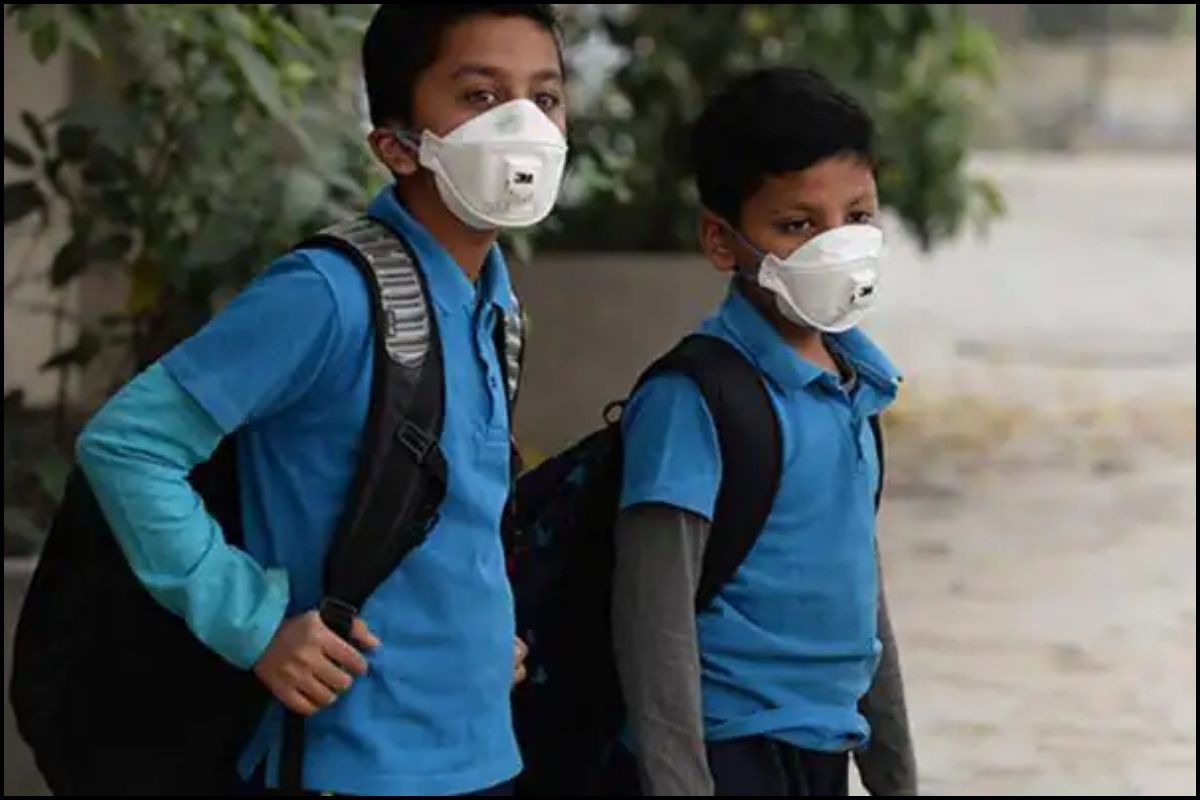According to the WHO, hazardous air pollution is also associated with premature birth, neurodevelopment and cognitive ability, and chronic cardiovascular diseases.
New Delhi: The toxic air quality that children are breathing in Delhi and its surrounding areas is adversely affecting them, with nearly eight out of ten children arriving in hospitals with respiratory problems. According to a report by timesofindia.com, there has been an increase in the number of children brought to the hospital with complaints of shortness of breath, persistent cough and cold, headache and nausea.
After Diwali, respiratory problems have become prevalent in OPDs as well as admissions to Fortis Hospitals. “OPD footfall has increased by 40% for this problem,” say paediatricians.
According to the WHO, hazardous air pollution is also associated with premature birth, neurodevelopment and cognitive ability, and chronic cardiovascular diseases.
Experts also believe that severe pollution has two types of effects on children’s health i.e. short term and long term. Here are some important signs to look for in your baby and what they might mean.
Long-term effects of air pollution on children
- Air pollution has been linked to harming babies while they are still in the womb.
- Pregnant women exposed to polluted air are more likely to give birth prematurely or have low birth weight babies.
- Air pollution also affects neurodevelopment and cognitive ability
- Exposure to toxic air causes bronchitis, asthma and childhood cancer
- Children who are exposed to high levels of air pollution may be at greater risk of developing chronic diseases such as cardiovascular disease later in life.
Short-term effects of air pollution on children
- persistent cough
- headache
- Nausea
- Absurd behavior
- Lack of concentration and decreased energy
- Itchy eyes
- Gasping
Why are children more at risk from air pollution?
- Children breathe faster than adults and therefore absorb more pollutants
- They also live close to the ground, where pollutants reach peak concentrations, at a time when their brains and bodies are still developing.
- Newborns and young children are also more vulnerable to air pollution in homes that regularly use polluting fuels and technologies for cooking, heating and lighting.
Meanwhile, the Supreme Court on Friday agreed to an early hearing of a writ petition related to rising air pollution in Delhi.
Air quality continued to decline in Delhi which recorded an overall Air Quality Index (AQI) of 472 on Friday morning. An AQI between 0-50 is considered good, 51-100 is satisfactory, 101-200 is moderate, 201-300 is poor, 301-400 is very poor and 401-500 is marked as severe/hazardous.
